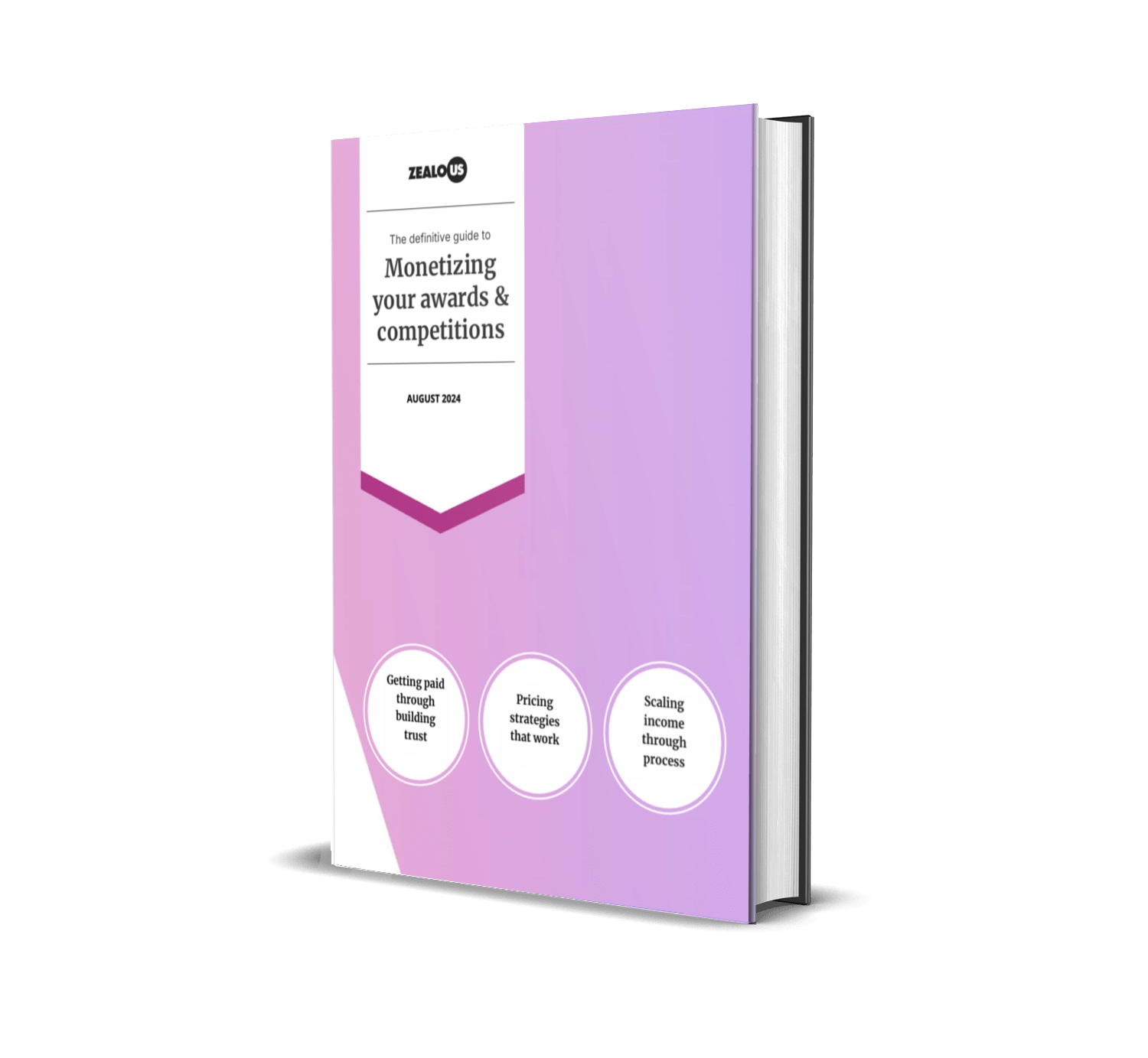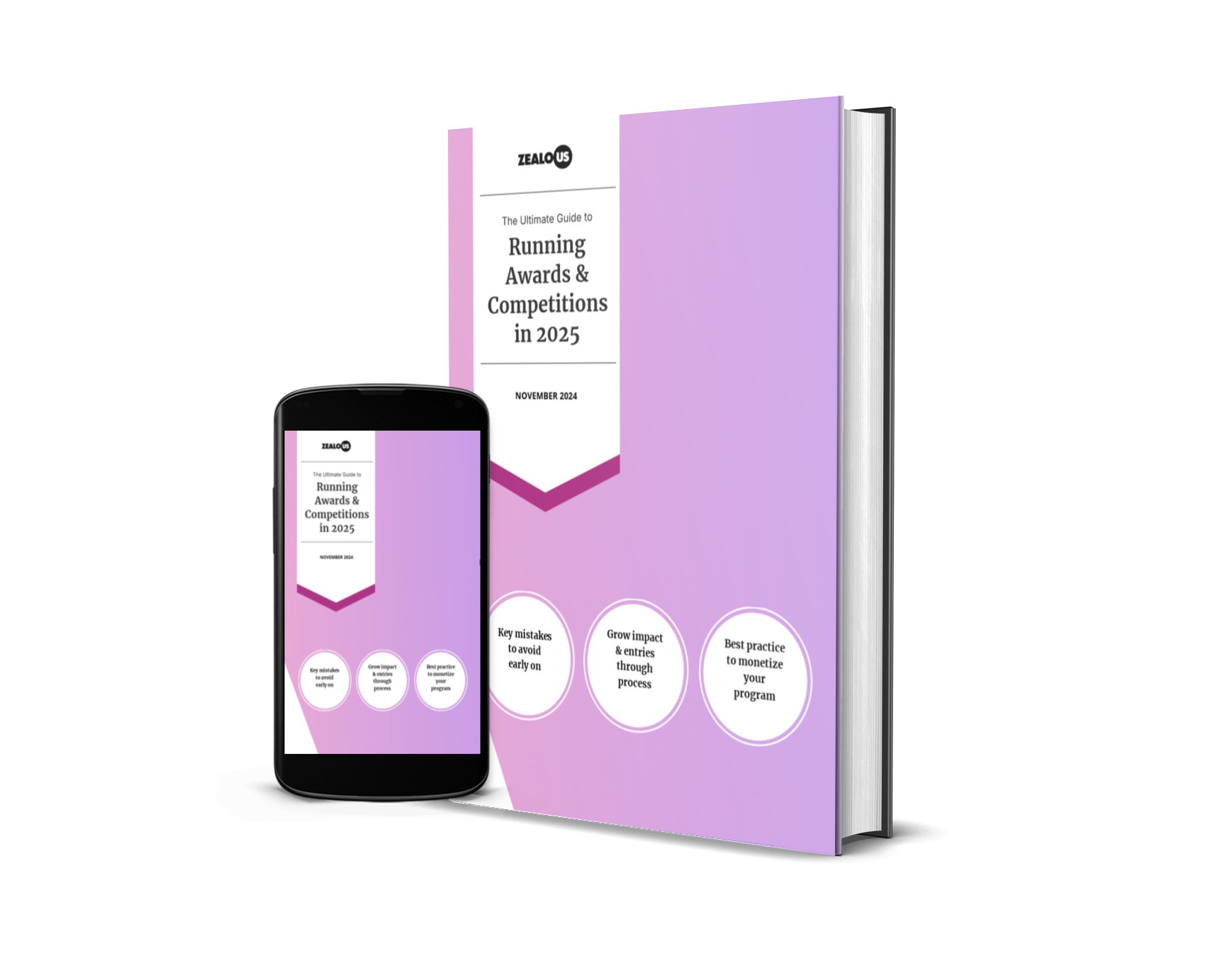With this in mind, we complied a useful checklist highlighting five common mistakes to avoid when managing entries for your awards.
Let’s uncover these crucial insights together as we guide you towards an exceptional awards ceremony.

Overlooking the importance of branding awards
People are more comfortable when they recognise a brand or an image It creates a familiar and trustworthy association.
Make sure your branding is consistent throughout the entire journey for entrants from where they see your awards being listed to when they are submitting.
Would you take the time to apply for an opportunity from an organisation that you don’t recognise (let alone pay for the entry fees)?
It can be helpful to prepare all visuals ahead of time, so you don’t have to make any last-minute changes.

Failing to direct your entrants to your awards portal
This is time wasting for your entrants. You might even lose them before they even get to your opportunity.
Make sure the URL link you add to an outreach email, website or social media goes directly to where they can start submitting.
Double check your URL before sharing it – sounds obvious, but does your URL contain your organisations name and is it spelt correctly?

Not providing clear entry guidelines for participants
Give clear and concise instructions. Don’t include anything that’s irrelevant for the entrant.
Also, use the same language within the software you are using to collect entries as this will make is easier for the entrants to understand what to put where.
Key things to check off:
- Timelines.
You’ve included the opening and closing date but what about when things need to be submitted outside the online entry form or when entries can be edited if they go to the next round?
Entrants will probably want to know when results are announced for each round and whether they’ll be informed.
By being clear, you won’t have to waste time answering the same questions.
- Contact details
Many entrants want to get their submission right, so they have a better chance of winning.
Making your email/phone number available to entrants to ask questions means you will have higher quality entries and happier judges too.
- Guidelines
Be clear on what needs to be submitted and what questions will be asked right from the start.
This will save applicants time to prepare, and they’ll know whether the Award is for them.
Third parties/agents who are submitting on behalf of them will find this especially useful as it will save agents less effort going back and forth to their clients to get all the information.

Failing to understand your audience effectively
Who will enter your opportunity, where are they and why should they apply? The better you know your targeted audience, the more likely they are to apply.
Knowing where your audience ‘hangs out’ could help you locate them and thus get them to apply.
Some ideas to get you started:
- Are your potential entrants readers of a specific magazine?
- Do they belong to a specific LinkedIn Group?
- Are they regular Twitter users?
- Are they subscribed to a specific online newsletter?

Underestimating the importance of subcategories and how they can be used
Before launching, make sure your subcategories are 100% confirmed as it will make managing submissions easier in the long term. It’s difficult to change subcategories once they are announced as it can cause confusion for entrants.
Also, think about how subcategories can be used for judging and selecting. If you’d like applicants in different subcategories to be asked different questions or submit different items, consider separating each subcategory as a different opportunity.
Zealous’ awards management fees are not based on the number of opportunities but the total number of submissions you’re expecting on your account.
Conclusion
Organising awards can be a challenging yet a rewarding endeavour. By avoiding these five common mistakes you can ensure that your event is well-organised and successful.
Keeping these key points in mind will not only help streamline the process but also enhance the overall experience for all parties involved in your award management process.
Ready to take your awards management to the next level?
Our intuitive software allows you to customize your submission forms, set deadlines, and assign judges to save you days of time.
Let us know you want us to write more content like this with a love!
Share
Authors









